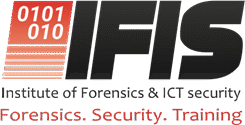“Every fraud I have ever investigated began with trust. Not fake trust, genuine trust.”
In every boardroom, trust is praised like a virtue. “We are like a family here,” someone says, and heads nod approvingly. But after two decades in fraud investigation, I now know that statement is often the prelude to scandal.
Because families forgive. Families look away. Families assume good intentions even when the numbers tell a different story. And that precisely is where fraud begins. Fraud does not start in dark alleys. It starts in bright offices, between colleagues who know each other too well.
The paradox of trust
Trust is the oxygen of collaboration. It allows organizations to move fast and innovate. But when unguarded, it becomes poison. I have seen many executives confuse loyalty and integrity. “He has been with us for ten years,” they say, as if tenure immunizes one from temptation. It does not. It only expands access and knowledge of control weaknesses. Fraud thrives where trust is absolute and oversight is absent.
When Summit Consulting Ltd was called to investigate a mid-sized firm, the main suspect was not a stranger. It was Suspect 1, a veteran accountant everyone called “uncle.” He was diligent, faithful, and even prayerful. He also created fake suppliers with nearly identical names to legitimate vendors. Over 18 months, he quietly siphoned UGX 371.8 million through mobile money transfers. No breaking in. No hacking. Just comfort, routine, and trust.
Fraud is not theft. It is a conversation gone wrong. “It begins as a story people tell themselves to justify small compromises.” “I will just borrow and pay it back.” “They don’t value me anyway.” “Everyone does it.” Those are the real beginnings of corporate fraud, not elaborate schemes, but emotional rationalizations.
Fraudsters rarely start as criminals; they start as disappointed employees seeking fairness their own way. The danger is psychological. When someone feels invisible, they construct private systems of justice.
And once the first theft succeeds without consequence, it evolves from an act into a habit.
The myth of the small fraud
Boards often comfort themselves by saying, “It’s only a small loss.” But small frauds are not harmless; they are rehearsals. The first UGX 100,000 stolen is never about the money; it is about testing the system. When nothing happens, the next theft becomes UGX 2 million. Then UGX 10 million.
Fraud is behavioural conditioning. When wrongdoing has no cost, it becomes culture.
Many organizations in Uganda and the region at large do not lack systems; they lack courage. Employees see anomalies but hesitate to speak up. Fear of labelling, fear of job loss, fear of being called “difficult.”
That silence is where fraud flourishes.
The courage to distrust; intelligently
High-trust cultures are not naïve. They practice structured scepticism. “Do not distrust people. Distrust blind systems.” Fraud prevention is not paranoia; it is professional hygiene.
Here is the formula Summit teaches: The Circle of Intelligent Distrust:
- Segregate duties: No one should initiate, approve, and reconcile the same transaction.
- Automate analytics: Let systems flag anomalies in real time.
- Protect whistleblowers: Make honesty safe, not heroic.
- It is not about suspicion: it is about design. The best control systems make fraud difficult even for good people tempted by bad moments.
Peter Drucker’s timeless phrase rings true in fraud management. Culture does not just eat strategy for breakfast; it eats controls for lunch. You cannot enforce integrity with policies alone. When leaders bend rules “because time is short,” they model deviance as efficiency. When a board ignores a conflict of interest “for now,” they signal that ethics is negotiable.
As Mr Strategy loves to say: “Fraud prevention is not an audit function; it is a leadership function.” Culture flows from tone, and tone flows from example. You cannot demand compliance from a staff you publicly undermine.
Boards must stop delegating integrity
Fraud is not an accounting issue. It is a governance issue. Too many boards outsource ethics to audit committees as if integrity were a department. It is not. It is a discipline that starts in the boardroom itself. A winning board does not wait for forensic audits; it anticipates fraud through sharp questioning:
Who reviews the reviewer?
- Which red flags are being ignored because they involve “trusted” people?
- How are we rewarding ethical courage, not just performance metrics?
- Boards must remember: when fraud breaks, the public does not blame the accountant; they blame the brand.
From awareness to architecture
Every November, the world marks Fraud Awareness Week. But awareness without architecture is time wastage. Do not just print posters saying, “Stop Fraud.” Build systems that make fraud unattractive. Below are the recommended practical steps for this month:
- Simulate fraud response. Run live scenarios.
- Audit the audit. Review who validates reconciliations and supplier approvals.
- Incentivize honesty. Publicly recognize employees who report control lapses early.
- Fraud awareness isn’t a campaign. It’s an ongoing redesign of trust.
The digital frontier: new trust, new risks
Uganda’s financial landscape is digitalizing at breakneck speed; mobile money integrations, fintech wallets, and instant payments. But technology amplifies whatever culture it finds. A dishonest employee with system credentials is more dangerous than any hacker. Boards must treat cybersecurity as an extension of fraud management. That means embedding behavioural analytics, systems that detect anomalies in user activity, not just system breaches.
One lesson I have learned over the years is that “You don’t fight digital fraud with firewalls. You fight it with foresight.” The final lesson: leadership defines the temperature of integrity
In one case, Suspect 2, a procurement officer, confessed: “I didn’t think they’d find out. Even the bosses do it.” That is the ultimate audit finding: hypocrisy at the top.
Integrity is not enforced through slogans; it is modelled through decisions. When leaders compromise once, they license everyone else to compromise repeatedly. Fraud risk, therefore, is a mirror. It reflects the character of leadership more than the cleverness of employees. As we mark Fraud Awareness Week, every board and executive must face one question: How is trust managed in our organization?
Because fraud is not inevitable. It is a design flaw. The solution is not suspicion; it is structure.
Not fear, but foresight. Remember the following:
- Fraud does not need criminals; it only needs comfort.
- Culture eats controls for lunch.
- You do not fight digital fraud with firewalls. You fight it with foresight.
- Trust deeply, but verify ruthlessly





